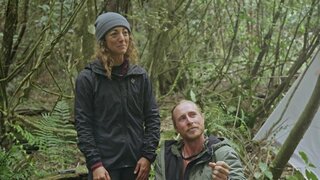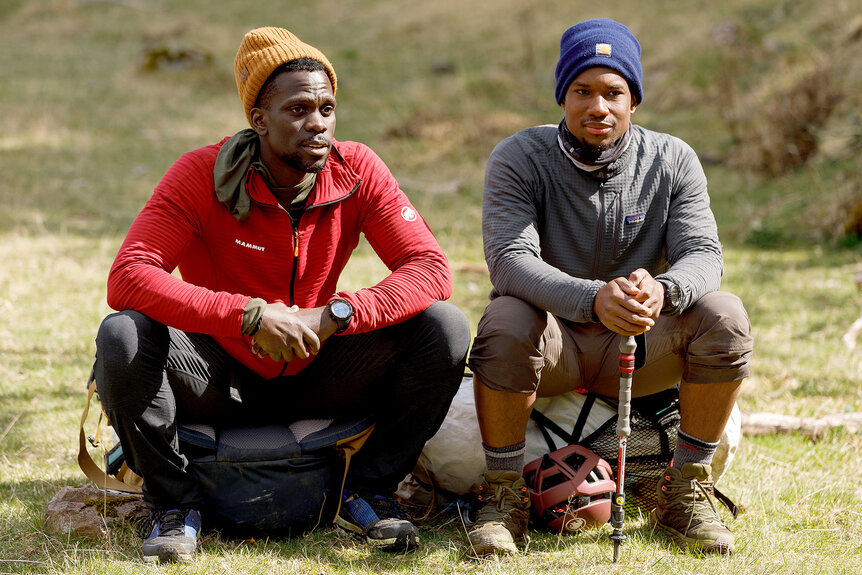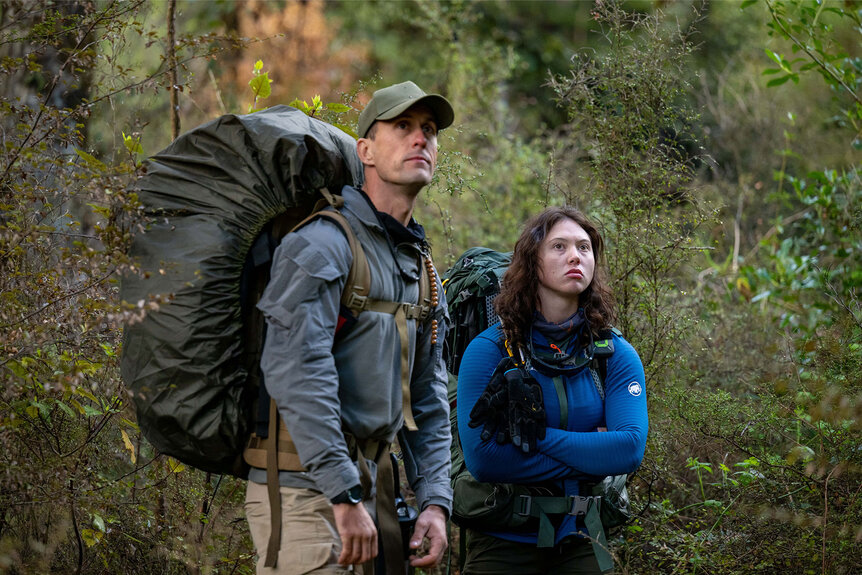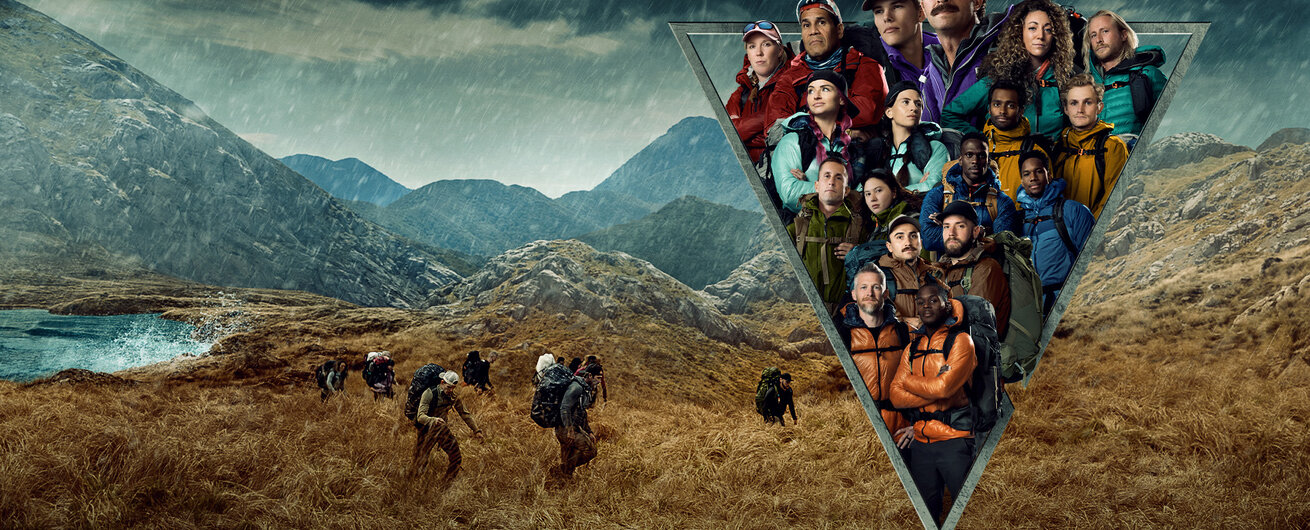How Long Can the Race to Survive Competitors Last Without Food? Science Says...
Going too long without much-needed calories has already affected some of Race to Survive: New Zealand's contestants.

In the first season of USA Network’s reality survival competition Race to Survive, adventurers and viewers went to the Alaskan wilderness for a race across the Last Frontier. For Season 2, we’re on the other side of the globe for a southern hemisphere stomp across New Zealand.
Each week on Race to Survive: New Zealand, you’ll watch as dwindling teams of two trek over 150 miles of Aotearoa. They’ll hike through bogs, cross lakes, and crest mountains on their way to the finish line and a $500,000 prize. The first team to complete each leg and reach the Finish Crate receives an advantage while the runners-up earn the right to keep competing. The last team to reach the end of each leg is eliminated.
Just in case the race itself wasn’t tough enough, no food is provided. Each team is responsible for foraging, hunting, or otherwise finding the food they’ll need to survive the trek. On each leg of the course, they’ll have the option of taking a detour to find food caches. If they find one, they’ll get a much-needed recharge at the cost of speed. Surviving the race, let alone winning it, will mean balancing progress with staying alive.
Unfortunately, there’s no reliable way of knowing just how close a person is to starvation. And so far, several of the Race to Survive teams have learned that the hard way.
How Long Can You Survive Without Food? It Depends.
Bodies come in all shapes and sizes, and they react to circumstances differently. Just how long a person can survive without food is a difficult question to answer precisely. It’s not exactly the sort of thing people design experiments to find out for pretty obvious ethical reasons. Instead, starvation studies typically hinge on survival situations and hunger strikes.
RELATED: Race to Survive Creator Explains Crafting a "New Sport" with Survival Adventure Series
An accounting of that data published in the German journal Arch Kriminol concludes that a person can survive without food and drink for between 8 and 21 days. If a person has access to water but no food, survival durations can extend to two months or longer. The nature of gathering data on starvation necessarily means it happens outside of controlled conditions and often relies on the recollections of the people involved after the fact. Considering that starvation comes with cognitive decline, it’s possible there is some exaggeration or misremembering at play.
On December 19, 2011, Peter Skyllberg was driving along a forest road in northern Sweden when his car became buried in the snow. He was recovered alive 60 days later on February 17, 2012, having survived by eating snow. In the 1960s, a man named Angus Barbieri went 382 days on nothing but tea, coffee, water, soda water, and vitamins, according to Guinness World Records. Barbieri checked himself into the hospital with the intention of fasting until he reached his desired weight. When he started his fast, he weighed 471 pounds, and he weighed in at just 178 pounds when he finished more than a year later.
It’s worth noting that he didn’t spend the entire time at the hospital; Barbieri was sent home to complete his fast, with regular hospital visits to check on his condition. It’s possible he ate at least some food when no one was watching, and even if he didn’t, his substantial stores of body fat coupled with water and vitamins allowed for an unusually long gastronomical abstinence.
What Happens When a Person Starves?
Our bodies are accustomed to regular periods without food and are adapted to surviving brief periods without sustenance. If they weren’t, we wouldn’t make it through the night. When your body goes looking for energy, it looks first for freshly consumed food in the digestive tract. The easiest fuel to get to is the blood sugar (glucose) from dietary sugars and carbohydrates. Depending on how recently and how heartily you last ate, this process takes a few hours. When that energy is gone and your body finds the table bare, it goes hunting in the proverbial pantries.
RELATED: Mikhail & Steffen Confirm What Tanked Their Race to Survive: New Zealand Game
The next stop is glycogen stored in the liver and in skeletal muscles. You’ll burn through that in about a day and that’s when things start getting serious. Without glucose and glycogen to grab hold of, your body transitions to more expensive ways of keeping the machinery running. Stored body fat gets broken down into glycerol and sent to the liver for conversion into glucose. That’s when you’ll start to experience weight loss and other symptoms of starvation, including confusion, fatigue, and dizziness — all symptoms we've seen already set in with our competitors.
Chewing through the fat stores can take days or weeks, depending on how much a person has to spare. If you find yourself in a survival scenario, hopefully you have a lot, because once it’s gone, your body starts converting muscle tissue. This has the added benefit of reducing your caloric load by reducing the number of cellular mouths you have to feed, but it also means that crucial muscles, including the cardiac muscle, are literally wasting away and your organs are shutting down.
There is no one answer to how long a person can survive without food. It depends on a number of factors including starting body mass, genetics, basal metabolic rate (the background rate of energy expenditure at rest), environmental conditions, underlying conditions, and physical activity level. Getting all of that information for the Race to Survive: New Zealand contestants would be difficult, not to mention invasive, but it’s a safe bet that their physical activity level (and therefore needed calories) is higher than most. Skipping meals might shave a few hours off of race time but, if they’re not careful, it could prove dangerous.
Catch new episodes and check in with the competitors of Race to Survive: New Zealand every Monday on USA Network at 11 p.m. ET/PT!

















